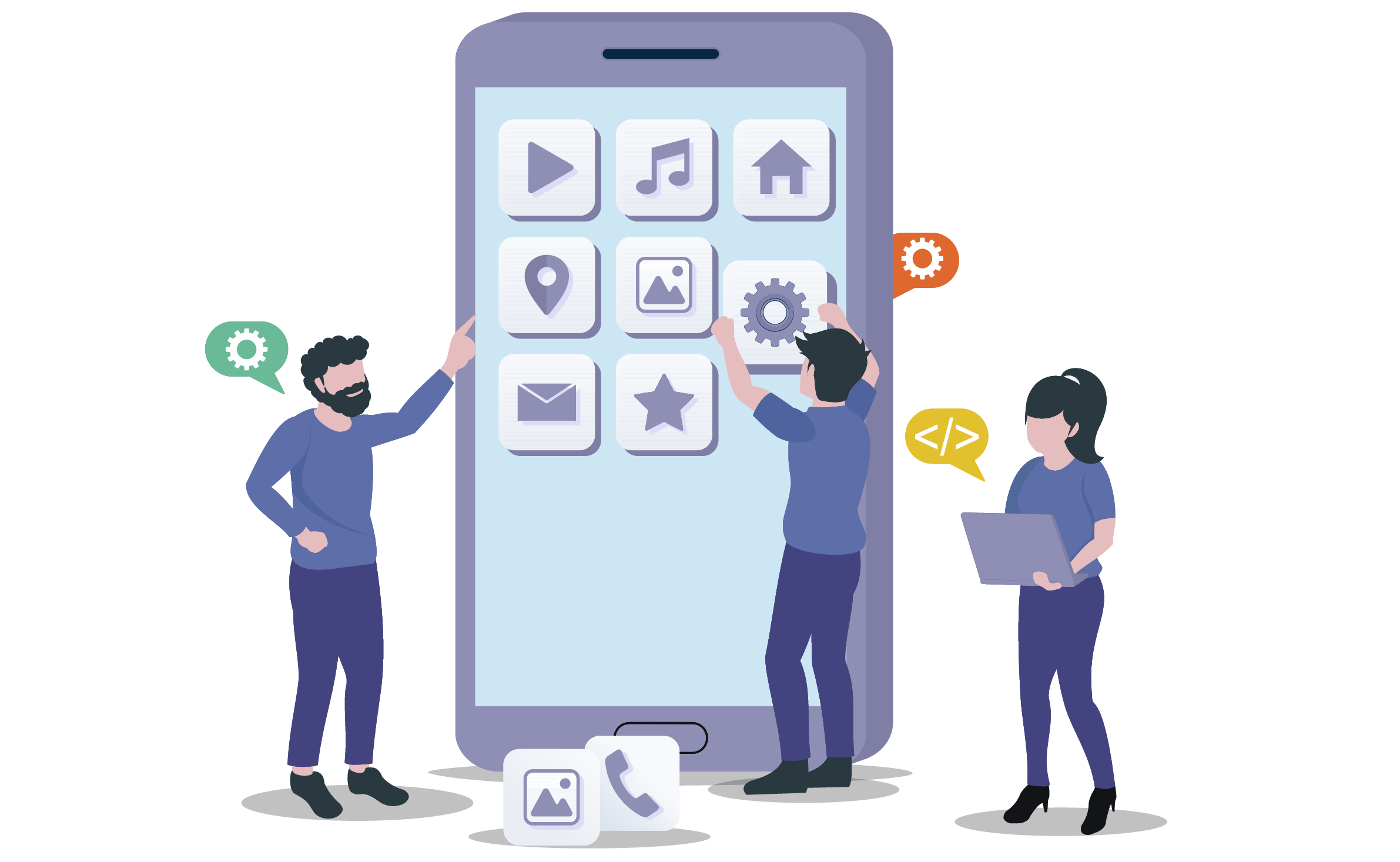Nearly every nook and corner of our daily life is interlaced with technology. We have become capable of enjoying the benefits of technology at our fingertips, especially after the outburst of smartphones. We can’t even count the apps we rely on for various needs. Our reliance on smartphones is growing daily, and so is our dependency on apps. Changes in user behaviors and other circumstances are setting up a challenging yet full of opportunities platform for mobile app development and developers. What are the rising trends in mobile app development? Let’s have a look.
AI And Machine Learning
AI (Artificial Intelligence) and machine learning are propelling the outcome of mobile apps forward in recent years. By adopting these technologies, apps can now understand preferences and user behavior resulting in a personalized experience. For instance, shopping apps can utilize AI-powered chatbots to provide customers the convenience of entering precisely what they want. AI helps make apps more sufficient with automated tasks. Advanced applications of machine learning can recommend products based on customers’ previous search and purchase history. Likewise, machine learning and NLP (Natural Language Processing) models can encourage human-to-computer communication that can even help in creative fields.
Metaverse
Adopting metaverse possibilities in mobile apps presents users with a virtual world that merges various online experiences. Recent years show the emergence of metaverse-like experiences-blended apps letting users sway between different apps and access an expansive area of services from a single scaffold. Major companies like Microsoft, Meta, etc., are looking forward to reshaping social media applications capable of supplying users with a virtual world of convenience with the enjoyment of interaction, meetings, games, and activity participation.
Internet Of Things
IoT (Internet of Things) is the collaborative network of technologies and connected devices that promote communication between devices and the cloud and between the devices themselves. By exploring the possibilities of IoT, mobile apps should be compatible with more devices, such as smart speakers like Amazon Echo and Google Home, etc. Every IoT device is in need of one reliable application at the least for control. Most such devices need to be integrated with third-party services and devices, which means the expansion of IoT device usage will likewise increase the demand for mobile apps to control it.
The Cloud Technology
The emergence of cloud technology was an utter revolution in mobile app development and usage. The use of cloud-based services delivers the amenity of more great scalability, flexibility, and security in mobile app development. This permits app developers to create and deploy apps more quickly, simultaneously providing users access to their apps.
Gamification Of Apps
Increasing gamification of apps in fields other than gaming, like fitness, education, etc., enables people to enjoy more engaging and fruitful mobile app experiences. This possibility can also be utilized in motivating users to set goals and complete tasks. For instance, an education app might seek the advantages of gamification to make the studying process more engaging by providing challenges and tests with points or virtual rewards awarded.
Swift by Apple
Swift is a robust and reflexive programming language from Apple, launched in September 2017 for iOS, macOS, iPadOS, Apple tvOS, and watchOS. This more compact and adaptable language is incredibly coherent, promising fewer codes and errors. More apps are likely to be born from Swift in the near future.
Integration Possibilities
Mobile apps have a great possibility of integrating with other platforms and devices such as wearables, voice assistants, smart home devices, etc. This possibility has already been established and will continue to provide new opportunities in mobile app development. The users will have the comfort of controlling and operating their connected devices through their mobile phones because of the integration options. The number and types of devices that can be accessed remotely through smartphones will increase enormously in the future, that is for sure. This scenario also does open a vast ocean of opportunities in mobile app development.
It can be concluded that the above-mentioned major trends and more will propel the development of mobile apps with significant results of convenience and customized experience for the users. To keep up with this rapidly transforming scaffold, app developers must be focused and up-to-date with the newly emerging technologies, trends, and user behaviors.





 +91 8714 60 30 48
+91 8714 60 30 48
 + 971 44 92 87 30
+ 971 44 92 87 30




